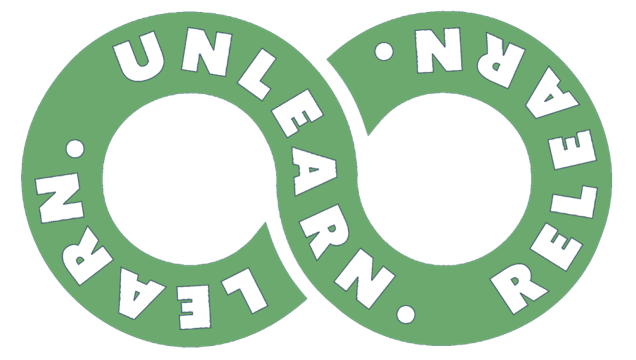Welcome to Polymathic Being, a place to explore counterintuitive insights across multiple domains. These essays take common topics and investigate them from different perspectives and disciplines to come up with unique insights and solutions.
Today's topic addresses one of the more frustrating retorts I sometimes get on social media. “Never trust someone who claims to be a polymath.” To be fair, the title of Polymath is one we bestow on some of the intellectual greats from the past and it does seem a little hubristic to claim myself among those ranks. Yet this essay will delve into how I don’t think any of us should claim we’ve reached the status of Polymath but instead, aspire to what a Polymath is and adopt the philosophies and thought processes that make this aspiration so powerful.
Introduction
For the large volume of new readers this past year, you might be wondering what a Polymath actually is!
A Polymath (Greek: πολυμαθής, polymathēs, "having learned much"; Latin: homo universalis, "universal human") is an individual whose knowledge spans a substantial number of subjects, known to draw on complex bodies of knowledge to solve specific problems.
Fundamentally, I view this as an aspirational goal to reconceptualize the world around us, and allowing me to draw from a broad array of fields to solve complex problems. I’ll point out that this definition doesn’t necessarily imply mastery per se. but knowledge.
So what’s the angle, if not mastery? As we explored in a previous essay on Systems Thinking, I think it boils down to three things:
Insatiable Curiosity
The humility to accept we don’t know as much about the problem(s) as we think
Intentional reframing of the problems to see if we understand them completely
We covered the third element in the essay: The Enemy’s Gate is Down which explores several case studies from my time in the Army where an intentional reframing changed the very nature of the complex problems we were facing. Today we will focus on the second element: Humility.
I Am Always a White Belt
"The only thing I know, is that I know nothing" -Plato
As you step into the world as an aspiring Polymath, I recommend bearing in mind the wisdom of the white belt of Martial Arts; leave behind who you believe you are, what you know, and your truths.
The belt system of any martial arts is developed as a progressive dyeing of a piece of fabric to gradually darker layers ending in the famous black belt. In the Dojo of Polymathic Being, there are no other belts but white because a master of these concepts realizes that they end up back where they started.
The more we learn, the less we realize we know. Just like we put the adage of systems thinking as, “If you think you understand the problem, step back and see if you understand the system,” so too, we find that as we step back, we know less than we thought about almost everything.
and I both have experience in Mixed Martial Arts and we met in 2017 in an online group called Mixed Mental Arts. Their goal was to help us grapple with the complex problems of life. It was a great group from which I’ve extracted many of the topics we talk about here. Alas, the group withered over time but the core element of Mixing Mental Arts is part of the foundation of Polymathic Being.The key to Mixed Mental Arts, as it is here, is to remember that we are always a white belt.
, a 4th Degree in Brazilian Ju Jitsu recently explored a bit of this topic on the Dunning-Kruger effect. Too often we fall victim to believing our expertise makes us better than others whereas we should actually be approaching situations with more humility and grace for others with that expertise.This thinking is essential because we are looking to develop an experimental mindset, not a litigious one. Our aspiration should also be to question ourselves more than those around us. The goal isn’t to change the world but to change yourself so that you can “Be the change that you wish to see in the world.”1
That is humility; the drive to challenge what you think you know and ensure you are constantly checking your own cognitive blind spots. As we covered in You Know Nothing, the Dunning-Kruger cognitive bias is less ‘stupid’ people and more those who have expertise in one area but are asked to speak outside of their domain. Low ability isn’t low intelligence, it’s just not skills or knowledge in a new domain:
In the field of psychology, the Dunning–Kruger effect is a cognitive bias wherein people of low ability suffer from illusory superiority, mistakenly assessing their cognitive ability as greater than it is. The cognitive bias of illusory superiority derives from the metacognitive inability of low-ability persons to recognize their own ineptitude; without the self-awareness of metacognition, low-ability people cannot objectively evaluate their actual competence or incompetence.2
The Polymathic mindset is one that aims to expand into new domains and disciplines and constantly learn because we recognize we all suffer from Dunning-Kruger. This requires the humility to accept we just don’t know which is then coupled with insatiable curiosity to find out more!
What’s Next?
Based on the fact that you are a subscriber to Polymathic Being is a good indicator that you are willing to entertain the idea that there is always more to learn. That’s a wonderful position to take.
The aspiring Polymath applies this humility to themselves first and then to their interactions with the world around them. They are always willing to be challenged and to challenge the systems and structures that surround them. This doesn’t mean throwing everything out. As we explored in Tradition!, we need to best understand why these systems and structures exist and then how to make those systems, and ourselves, better.
A last thing to consider is that White itself isn’t a color but the reflection of all visible wavelengths of light. In this context, we use it to open the aperture of our study to analyze the larger systems spectrum. A Polymathic mindset opens up more possibilities, greater understanding, new tools and philosophies, and the recognition that we know less than we’d often care to admit.
Our White Belt reminds us of the three most powerful words we can apply here: “I don’t know”. This drives us to challenge everything we thought we knew and gives us the freedom to explore the world.
You can let go of the desire to be ‘right’ and transition to the desire to learn. This transition involves the follow-on phrase, “But I will find out” coupling the humility of “I don’t know” with that first step of insatiable curiosity and a key step in our trifecta of Learning, Unlearning, and Relearning
Take a moment to tie on your White Belt.
Look at the color.
Take a deep breath.
Let go.
Welcome to the Dojo of the aspiring Polymath!
Enjoyed this post? Hit the ❤️ button above or below because it helps more people discover Substacks like this one and that’s a great thing. Also please share here or in your network to help us grow.
Polymathic Being is a reader-supported publication. To receive new posts and support my work, consider becoming a free or paid subscriber.
Further Reading from Authors I really appreciate
I highly recommend the following Substacks for their great content and complementary explorations of topics that Polymathic Being shares.
So what topics have you dug into that have surprised you in what you found on inspection
Techno Sapien Business Leadership Insights
Never Stop Learning Insightful Life Tips and Tricks
One Useful Thing Practical AI
The Muse Fun, Witty, Insight
Out of Curiosity Great little nuggets to learn from
Artificial Intelligence Made Simple Great round-up of AI topics in the media and tech reporting.
Often attributed to Mahatma Gandhi, we soon find that this quote is a distillation of many authors and philosophers and, as you are learning, the truth is often not as simple as a meme.
Kruger, Justin; Dunning, David (1999). "Unskilled and Unaware of It: How Difficulties in Recognizing One's Own Incompetence Lead to Inflated Self-Assessments". Journal of Personality and Social Psychology. American Psychological Association. 77: 1121–113












Thanks for writing this! I'm tying on my white belt.
Such a fun read. I love this one!